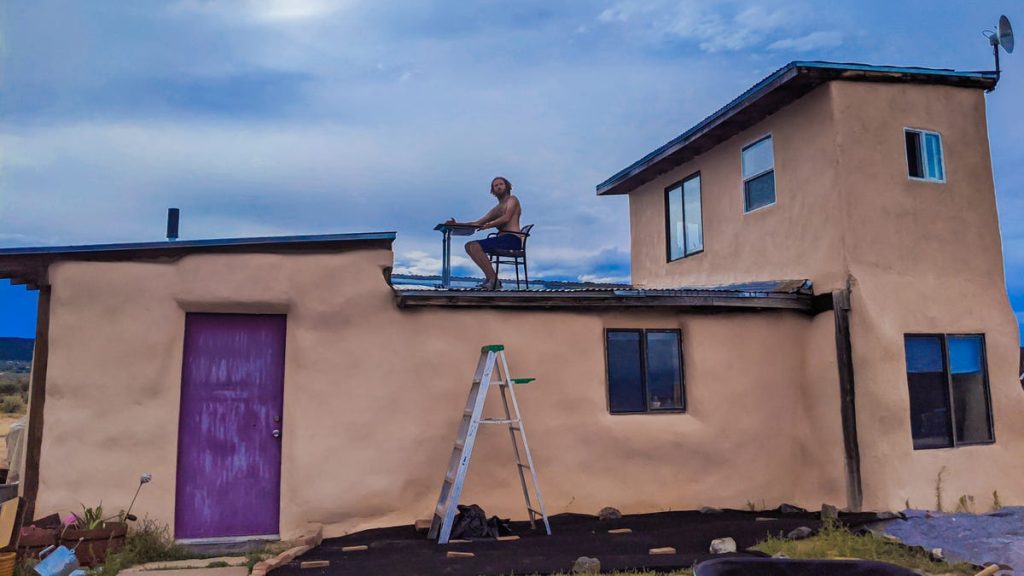During the initial summer of COVID, many people flocked to campgrounds, but one family in New Mexico decided to embark on a different journey – living off the grid. This involved supplying their own electricity, heat, and water using solar panels, wood, propane, and rain catchment systems. This move was not only a response to the pandemic but also a way to reduce living costs and gain a deeper understanding of natural and built systems.
The decision to move off the grid came during the COVID lockdown when the family realized the fragility of their current situation and yearned for a more self-sustained lifestyle. They found a small off-grid house made of straw bales and stucco in a unique community outside of town. While the house was structurally sound, it lacked essential components like a solar system, electrical wiring, and plumbing. This led to the ultimate pandemic project of installing these systems themselves.
Taking on the task of installing solar panels and setting up rain catchment systems was a challenging but rewarding experience for the family. They had to rely on DIY knowledge, YouTube tutorials, and advice from experienced individuals to get the job done. The journey was filled with mistakes and close calls, but it ultimately led to a sense of accomplishment and self-sufficiency. The family now benefits from solar energy as their primary source of power, illustrating the potential of off-grid living in a modern world.
Water is a crucial resource when living off the grid, and the family relies primarily on rainwater collected from the roof and stored in large tanks. During dry spells, water can be delivered by tanker trucks or sourced from a community well. To conserve water, they use greywater for irrigation, enabling the growth of gardens, fruit trees, and berries in a harsh climate. By adopting sustainable practices and being mindful of water usage, they have created a mini microclimate on their property.
In addition to conserving water, the family is also diligent about electricity usage. Despite having a surplus of solar energy most days, they prioritize a minimalist lifestyle and avoid unnecessary electrical consumption. By using a device called a Kill-a-watt, they can monitor energy usage of appliances and make informed decisions about power consumption. This conscious approach to electricity management has led to a deeper appreciation for resources and a sense of accountability.
Living off the grid has not only reduced the family’s environmental footprint but also instilled a newfound respect for water and electricity. By taking on the responsibility of sourcing their own resources, they have developed a closer relationship with these essentials and avoid taking them for granted. The solar energy system, in particular, is seen as a magical piece of modern technology that enhances their off-grid lifestyle. This journey has transformed the family’s perspective on sustainability and self-sufficiency, highlighting the benefits of living off the grid.












